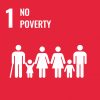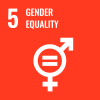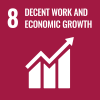Tumbes, Peru – Peru and Venezuela are two countries with twinned histories and cultures. They are also united by global recognition for their rich gastronomy, which today serves to integrate not only flavours, but entire communities.
Marylin Guzman, a 42-year-old Venezuelan single mother with two children, recalled arriving in the northern city of Tumbes five years ago with nothing but her suitcase: “The beginning was challenging.” Despite years of expertise in business administration from her country, Marylin had no choice but to take an unofficial job as a street coffee seller upon her arrival.
“A job doesn’t necessarily give you stability. Having your own business, on the other hand, gives you a much firmer foundation,” she added.

Uniting Flavours provides training in gastronomy, business skills, finance, and marketing to migrants and Peruvians. Photo: IOM/Gema Cortes

Venezuelan migrants and Peruvians learn how to cook, nurturing cultural exchange. Photo: IOM/Gema Cortes
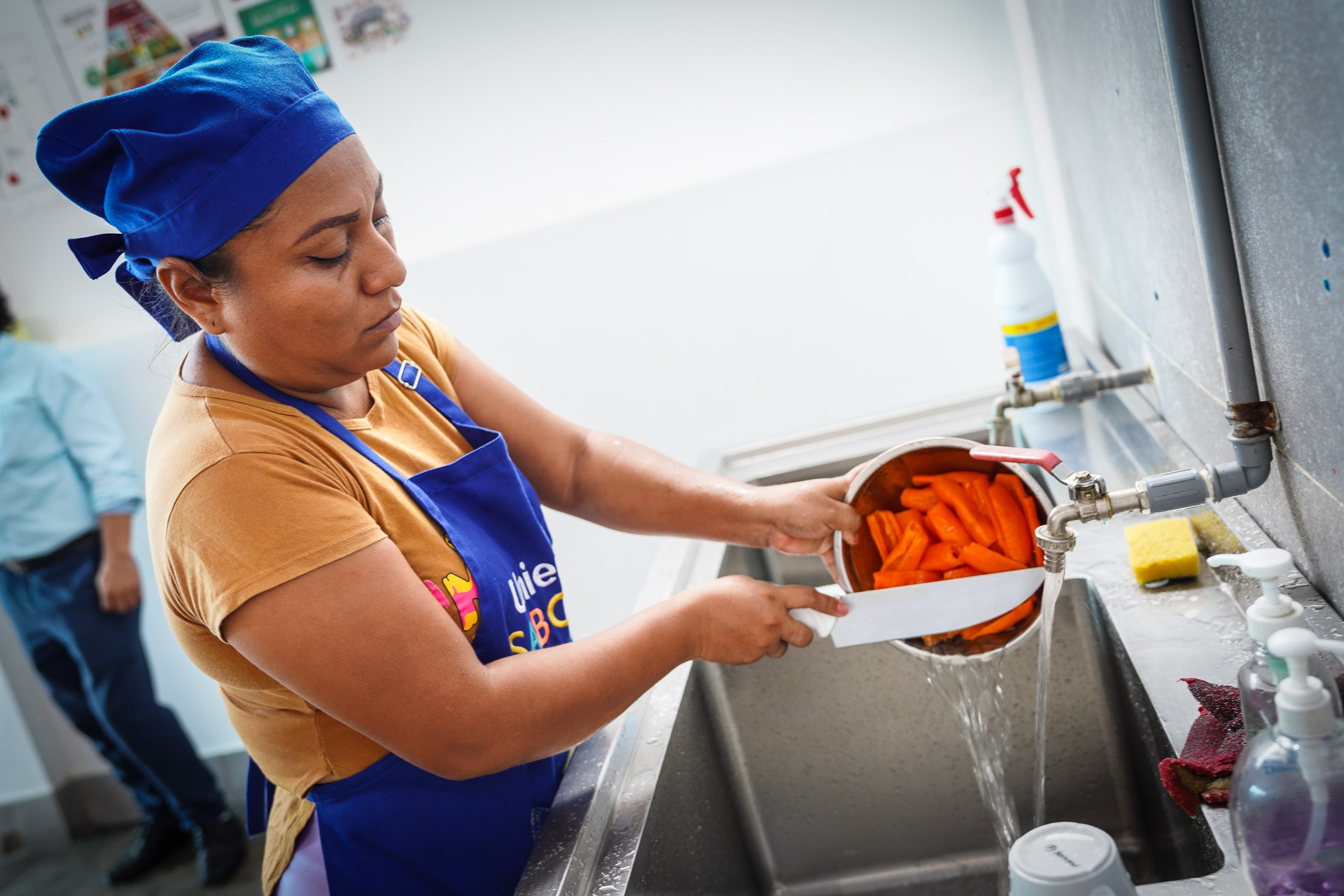
For Peruvian Yanina Tello, the gastronomy exchanges with Venezuelans taught her a fusion of dishes. Photo: IOM/Gema Cortes

Peru and Venezuela are recognized for their rich gastronomy. Photo: IOM/Gema Cortes
Marylin was determined to become her own boss and stumbled upon Uniendo Sabores (Uniting Flavours), an initiative that fosters nurturing cultural exchange through gastronomy and pastry workshops, complemented by marketing and entrepreneurship classes. By equipping migrants and Peruvians with entrepreneurial skills, the project enriches Peru’s culinary landscape while fostering cross-cultural understanding, promoting labour inclusion and the generation of sustainable livelihoods.
It was not until Marilyn was accepted into the workshop that she realized she could take her small business to the next level. “I had been working for five years…without any sort of organization,” she recalled, speaking at the small kitchen of Uniting Flavours. “This training is making me see that I can do more and grow more.”
On the other end, for Peruvian Yanina Tello, an event cooker, the gastronomy exchanges with Venezuelans will help her expand her small business including a fusion of Venezuelan and Peruvian dishes. “I have learnt to cook arepas (Venezuelan corn cake); now I fill them with Peruvian things,” she said.
Run by Gastrosofia, a technical centre of studies, with support from the International Organization for Migration (IOM), the two-month course provides basic training in gastronomy, business skills, finance and marketing to migrants and Peruvians. Since the programme started on September 2022, it has helped give around 490 fledgling migrant entrepreneurs the skills they need not only to survive but to thrive.
“After these courses, people are inserted in the labour market and others generate new entrepreneurship. Sometimes after the workshops, Venezuelans and Peruvians have got together and set up their own businesses,” said Yeraldin Salvador, IOM Project assistant in Tumbes, highlighting that the courses are certified by the Ministry of Education, “which makes it easier for people to find a job.”

Uniting Flavours has given 490 migrants gastronomy skills. Photo: IOM/Gema Cortes

Uniting Flavours favours better coexistence among migrants and Peruvians. Photo: IOM/Gema Cortes

Preparing roasted lamb, a Peruvian dish. Photo: IOM/Gema Cortes

Marylin and Lucy observing the preparation of a Peruvian dish. Photo: IOM/Gema Cortes
Peru is the second country in the world with the largest migrant and refugee population from Venezuela: more than 1.5 million people who represent a vital force for Peru’s economic and cultural richness.
Much of IOM’s work with Venezuelan migrants and refugees across South America is focused on integration – giving people the tools they need to be self-sufficient and contribute to their host countries. Because regular income is the foundation upon which stability is built, programmes like the business incubation mentorship in Tumbes are a key part of those efforts.
For Lucy Montanez, 29, Uniting Flavours proved fundamental in providing her with the necessary means to adapt her successful Venezuelan pastry business to the very different realities of the Peruvian market.
“It has helped me to get ahead and integrate. I learned how I can improve my recipes and integrate local flavours,” she said in her small kitchen while preparing a cream cake to deliver. Lucy was able to double her turnover, and the seed capital allowed her to buy a bigger oven.

Lucy Montanez at her successful Venezuelan pastry business. Photo: IOM/Gema Cortes

Jorge Rodriguez, a Venezuelan gastronomy student whose dream is to set up his own business. Photo: IOM/Gema Cortes

Cutting red pepper for a Peruvian dish. Photo: IOM/Gema Cortes

Marylin Guzman selling coffee at a street corner in Tumbes, northern Peru. Photo: IOM/Gema Cortes
The capacity building and exchanges between Venezuelan and Peruvian entrepreneurs enrich the gastronomic offer in the north of the country, help hundreds of families to support themselves, and favour a better coexistence in the communities.
"We need to emerge. Uniting Flavours gives us an important space because it teaches us and trains us to move forward with an initiative or business idea," said Jorge Rodriguez, a Venezuelan student whose dream is to set up his own business and become a chef.
This story was written by Gema Cortés, IOM Media and Communications Unit, Office of the Special Envoy for the Regional Response to the Venezuelan Situation.
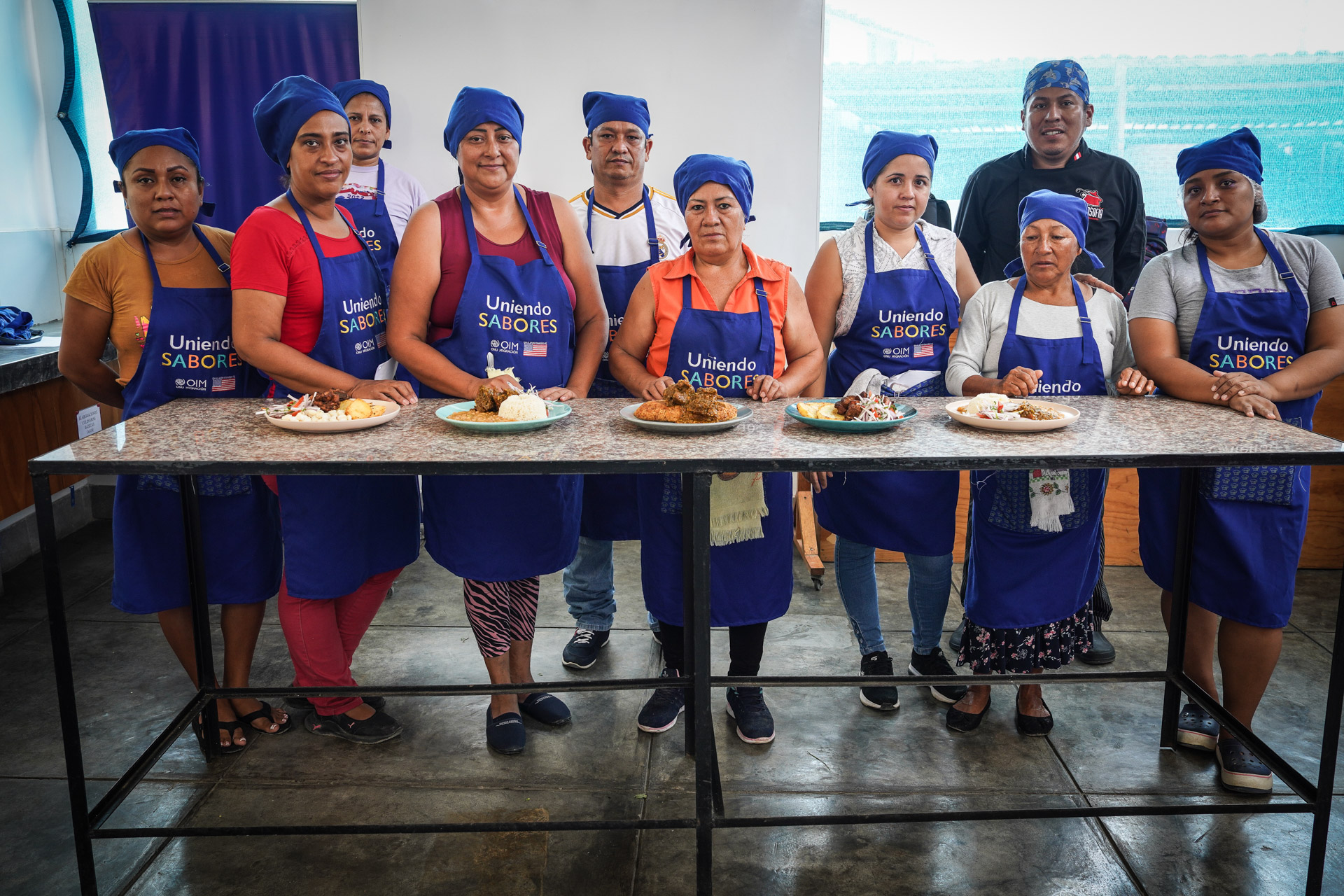
Gastronomy students showing several Peruvian dishes. Photo: IOM/Gema Cortes

Close up of roasted lamb, a typical Peruvian dish. Photo: IOM/Gema Cortes
